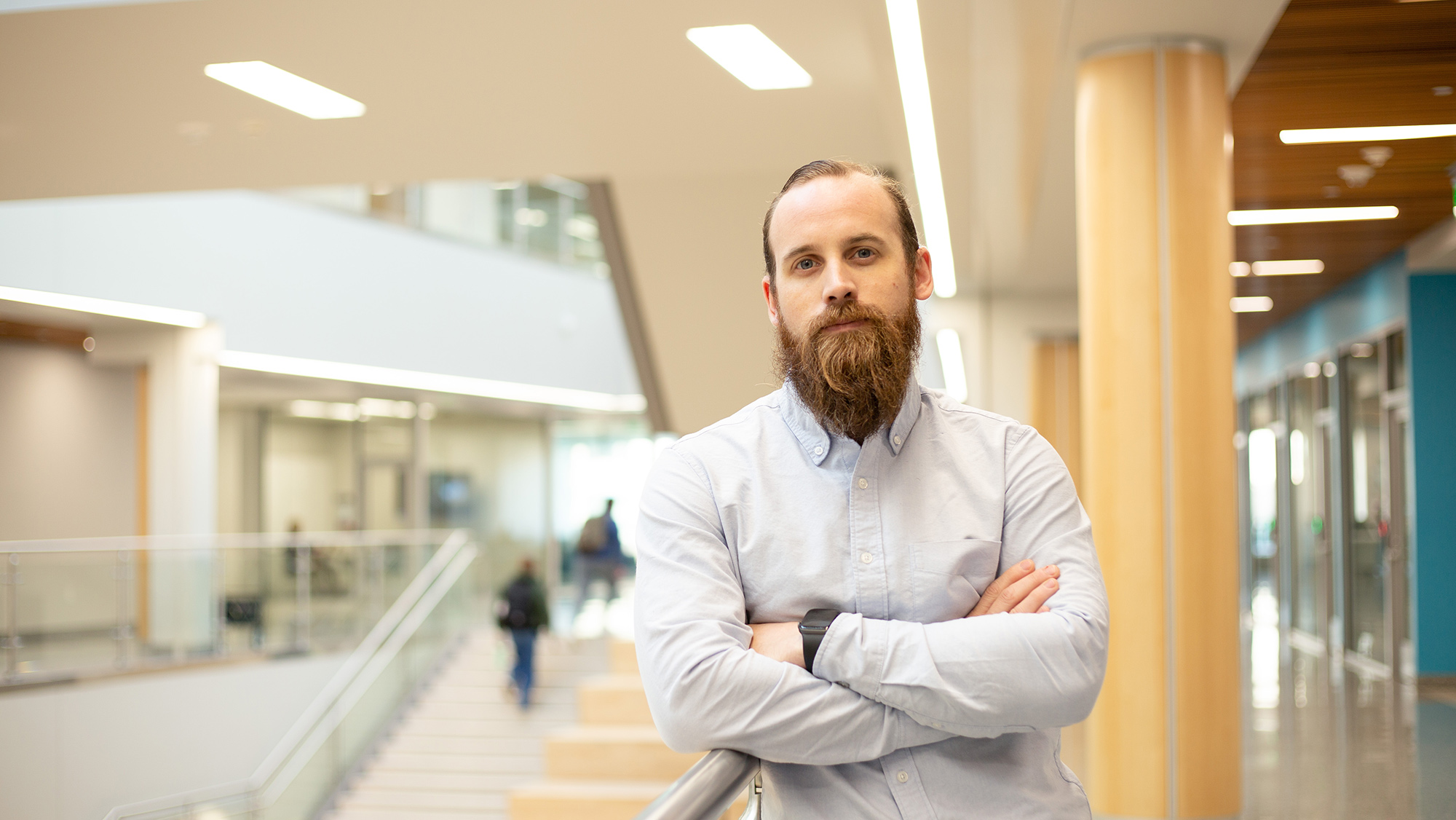James Conway wears many hats: husband, father, soldier, cyber officer and now Aggie.
Conway is a graduate student in the Master of Engineering in Engineering with a Specialization in Cybersecurity at Texas A&M University. He is also a captain in the United States Army with nine years of service under his belt.
"I absolutely have a different work ethic than I did as an undergraduate," he said. "There is more of a military mentality regarding my graduate courses. It's about getting things done and getting them done on time. Working harder is encoded in me now. My current job in the Army is to be a student. But I'm also a husband and a father, so it all comes down to time management. Finding the right balance is difficult, and I haven't figured out the answer yet."
During an Afghanistan deployment in 2020, he discovered an opportunity to continue learning while maintaining his active duty status. The Advanced Civil Schooling program allows military members to attend graduate school full-time in the United States in return for a time commitment.
Having a background in cybersecurity is always beneficial.
Conway chose multidisciplinary engineering because he wanted a graduate engineering degree specializing in cybersecurity to boost his understanding of those concepts and practices.
"Cybersecurity is critical because we use so many different devices," Conway said. "Everything is conveyed and communicated over an internet connection of some sort. It's essential to not only have the skills and knowledge to program these devices and understand how they operate, but also to implement protection measures within those systems."
Much of cybersecurity involves protecting the Internet of Things and regular devices such as laptops, computers and phones. However, protection needs also extend to smart homes. With virtual assistant products on the rise, many people outfit their households with smart pet or doorbell cameras, robotic vacuums, speakers, lights, thermostats, air purifiers, etc.
"Because of my experience and knowledge of cybersecurity, I have the appropriate training to take these devices off the network without taking them off the network," Conway said. "I can hide my home in a way that would make it very difficult for somebody to get into my network, gain access and attack my systems. Having a background in cybersecurity is always beneficial."

From cyber officer to graduate student
Conway holds a computer science degree from Georgetown College in Kentucky. He was commissioned into the Army in 2014 after graduation and was previously stationed at Fort Eisenhower (formerly Fort Gordon), Georgia, where he served as a Company Commander for a cybersecurity unit for nearly two years. He was responsible for ensuring nearly 75 cyber personnel received the correct training and operated successfully in their cyberspace operations.
Conway says it can be difficult to describe what he does when it comes to introductions. Because of the sensitive nature of cybersecurity, much of his work is classified and occurs in secured workplace environments.
After four years as a cyber officer, Conway turned his sights towards graduate school. Finding a graduate program with a specific degree in cybersecurity proved difficult; however, many of the universities he researched only offered computer science or engineering degrees. His brigade commander, an Aggie himself, suggested Conway consider Texas A&M.
After learning that Texas A&M's cybersecurity engineering degree was accredited by the National Security Agency (NSA), Conway felt confident this was the right choice for him. Because he partially works within the NSA as a cyber officer, he needed an accredited degree.
Conway recommends that students with a basic understanding of programming consider a cybersecurity-focused degree.
Once you begin, things fall in place.
"Texas A&M and the multidisciplinary engineering department do a great job gauging the courses and ensuring their students succeed," he said. "You're going to find the help you need in this department and at Texas A&M. If you think you're struggling, professors and other students will work with you if you're willing to ask. Don't be afraid to ask for help."
Conway is a branch-qualified senior captain. Not only has he completed his initial training as a captain, but he also completed the cyber transition course and fulfilled his key development positions as a Company Commander. He will next qualify for the selection board, the process for officer promotion to the rank of major and future service in the Army.
After he finishes his degree, he will likely return to Fort Eisenhower to work in a cybersecurity role. He hopes to move into a cyber mission team lead role at the Joint Base San Antonio, the largest joint base in the Department of Defense. He even hopes to pursue another master’s degree in strategic studies from the U.S. Naval War College.
Conway recommends all prospective graduate students to practice good time management and to understand their priorities. "Don't be too concerned about coming back to school. If that's something that you want—which it was something that I wanted—then go for it. Once you begin, things fall in place."